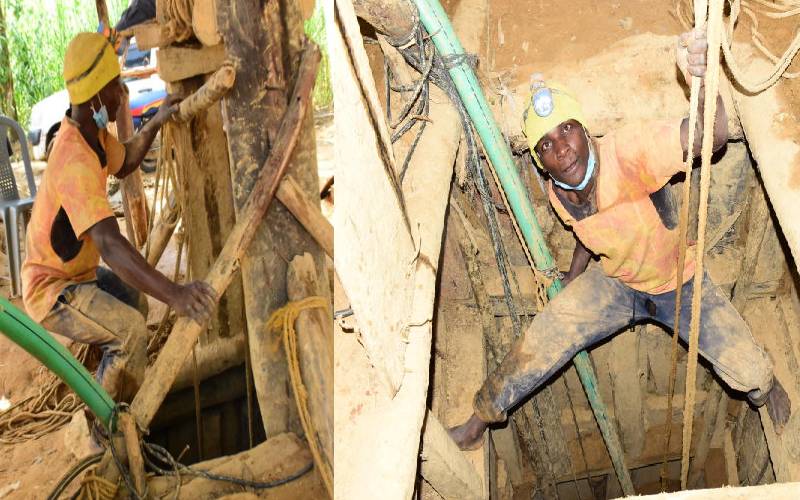×
The Standard e-Paper
Stay Informed, Even Offline

Aggrey Mulayi, a gold miner enters a shaft in Rosterman, Kakamega county. [Mumo Munuve, Standard]
Elinah Lipeya, 67, is lucky to be alive. Sometime in November last year as she prepared to go to bed at around 9.41pm, she noticed water seeping into the house.